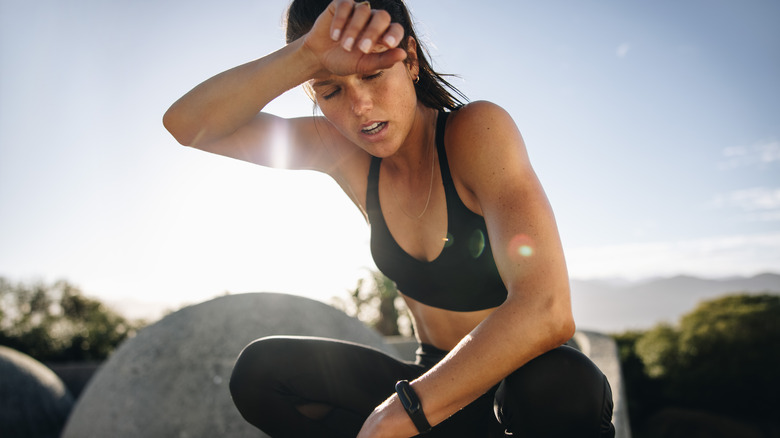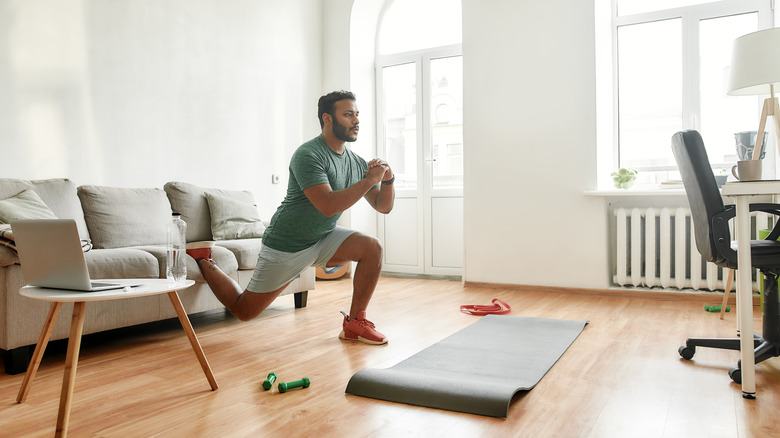What Does It Mean If You Don't Sweat While Working Out?
Sweat has somehow become the invisible badge of honor that you're killing your workout. Not only is it physical proof to your gym buddies that you're working hard, but there are many health benefits of a sweaty workout sesh. Per Byrdie, it's a natural mood booster, aids in muscle recovery, enhances immunity, flushes out toxins, and much more. But, what if you don't sweat while working out?
For starters, age plays a big role when it comes to sweat. According to exercise physiologist, Matthew Accetta, older individuals have to thermoregulate more to reach homeostasis so they tend to sweat more than children (per Well+Good). On the other hand, the weather may also play a role in how much you sweat during your workout. Warmer weather and greater humidity may lead to sweatier workout sessions. "This has to do with the physics of the environmental temperature exceeding body temperature," explains board-certified dermatologist, Heidi Prather, to Livestrong.
Still, if you're not sweating, this could also be a sign you're not pushing yourself hard enough during your workout. Prather points out that exertions during physical activity affect metabolic rate directly, so the harder you work, the more you'll sweat.
Other reasons why you may not sweat when working out
Now if you're pushing yourself and still not sweating chances are you're dehydrated. Oftentimes dehydration is a common reason behind little to no sweating since hydration directly impacts sweat, shares Everyday Health. When you don't drink enough water, it's easy for your body to become dehydrated during exercise, especially in hot weather, and this can affect bodily functions, explains family physician, Eric Ascher, to Livestrong. According to the Cleveland Clinic, symptoms of dehydration include headaches, tiredness, dizziness, dry mouth, dark-colored urine, muscle cramps, and more.
Beyond dehydration, medical and skin conditions can also affect your sweat response (via Livestrong). Skin conditions may lead to clogged pores, which may prohibit the skin from properly perspiring. On the other hand, medical conditions, specifically ones that damage nerves, may cause anhidrosis. Anhidrosis, also known as hypohidrosis, is a condition that occurs when sweat glands aren't working properly, so they hardly produce sweat (via the Mayo Clinic).
At the end of the day sweating less doesn't necessarily mean there's a problem. "There's definitely such a thing as excess sweating, where people who hydrate more than others have excess fluid on board that causes excess sweating," explains Matthew Accetta to Well+Good. If you're concerned about your sweating, Livestrong recommends staying properly hydrated, avoiding exercising in the sun for too long, and wearing the proper clothing for outside activities.


